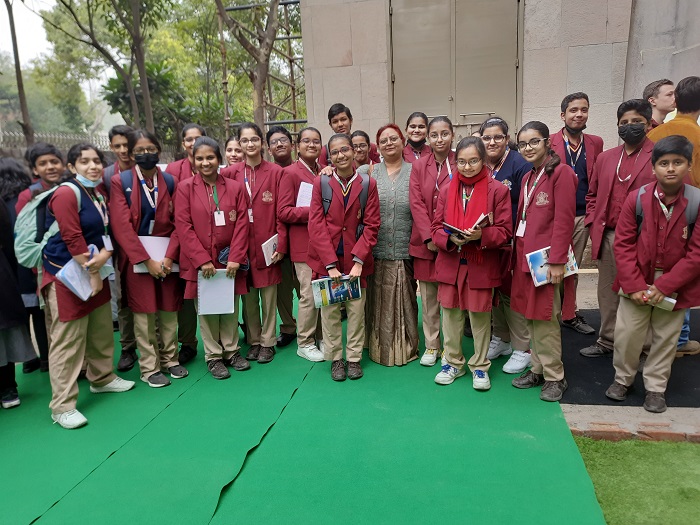Visit to the Holocaust exhibition
The massacre of 6 million Jews by Hitler and the persecution that Jews suffered all over the world in the last 15 centuries has been meticulously recorded by the Jews themselves after 1945 and has been enshrined not only in history books, but also in Holocaust museums.
The United Nations General Assembly designated January 27the anniversary of the liberation of Auschwitz-Birkenauas International Holocaust Remembrance Day.
On this annual day of commemoration, the UN urges every member state to honour the 6 million Jewish victims of the Holocaust and millions of other victims and to develop educational programmes to help prevent a future genocide. The United Nations in India in association with Alliance Franaise de Delhi, Embassy of Israel, UNESCO New Delhi and other diplomatic missions organised a virtual commemoration of the International Day of Commemoration in Memory of the Victims of the Holocaust on 30 and 31 January 2023.
[gallery link="file" order="DESC"]
24 students along with their teachers were invited to witness the exhibition on the theme, 'Home and Belonging'. The exhibits focussed on the plight of the Jewish children, showcasing self-composed poems, handmade toys and letters written but never sent. These helped the Jews in overcoming their confinement and segregation.
In a video message by Antnio Guterres, United Nations Secretary-General, he remembered and mourned the loss of so many lives calling it a culmination of millennia of antisemitic hate. He further urged everyone to be more outspoken than ever in the face of growing economic discontent and political instability, escalating white supremacist terrorism, and surging hate and religious bigotry.
A series of short videos were played focussing on the hardships faced by the Jews, the rise of Nazism and the ghetto train station of Radegast ( where tens of thousands were herded off to death camps), an interview along with some of the personal experiences of the survivors of one the darkest episodes of the Nazi-era. This included the trauma of being forced to work in metal factories, the separation from families, prohibition from celebrating Bar-Mitzvah (coming-of-age ritual in Judaism), adopting false Christian identities, in the hope that their memories will not fade away into the history books.
The students also got the opportunity to pose questions to a panel of experts. To one of the questions asked about the importance of the Holocaust, the panel explained that, in the globalised world with varying communities and cultures living together, this can always happen to us in the future and "something this brutal can never be forgotten even if the last survivor is gone".
The opportunity helped the students to view history from a close perspective.













